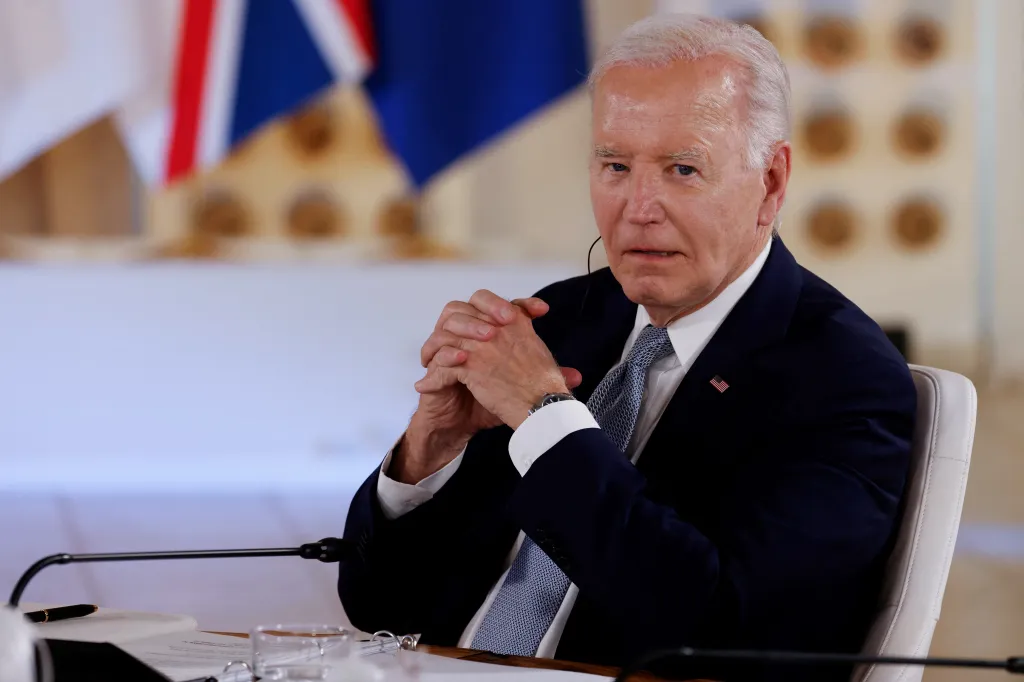At the G7 summit in Italy, President Biden has drawn criticism for what some perceive as lapses in focus and awkward public moments.
Reports suggest Biden’s interactions have been marred by incidents such as an awkward salute to Italian Prime Minister Giorgia Meloni and wandering away during a skydiving demonstration, requiring Prime Minister Meloni to guide him back to the group.
Moreover, Biden reportedly kept Meloni waiting for 20 minutes before their initial meeting, prompting a humorous chiding from her upon his arrival.
Despite these moments, Biden has also been noted for displaying clarity during discussions with other world leaders on pressing global issues.
The White House has dismissed criticisms of Biden’s performance, with senior deputy press secretary Andrew Bates labeling such reports as untrue and emphasizing Biden’s effective leadership on matters of national security.

Criticism regarding Biden’s mental acuity has persisted, exacerbated by reports of him using cheat sheets and appearing fatigued during meetings.
This concern has not been limited to political adversaries but has also resonated among Democratic lawmakers and a significant portion of the electorate, as highlighted by polling data indicating widespread doubts about Biden’s ability to complete another presidential term.
Despite these challenges, the summit itself has seen significant diplomatic activity, including the signing of a 10-year security agreement with Ukraine and substantial financial aid pledges to support Ukraine’s defense efforts against Russia.
This underscores ongoing international cooperation and strategic commitments despite the distractions surrounding Biden’s public appearances.
Looking ahead, Biden faces scrutiny not only from domestic observers but also from global audiences as he prepares for upcoming debates and continues to navigate critical diplomatic engagements.
The contrasting perceptions of his leadership abilities reflect broader concerns about continuity and effectiveness in American leadership on the world stage.